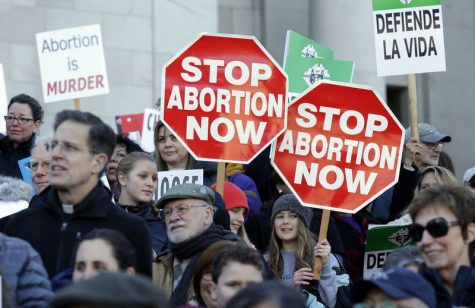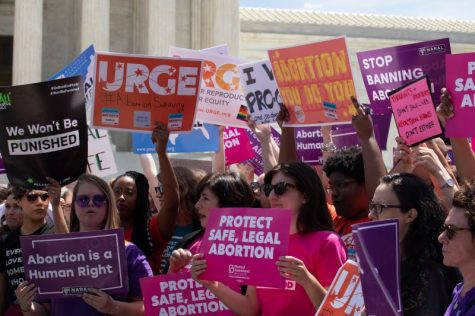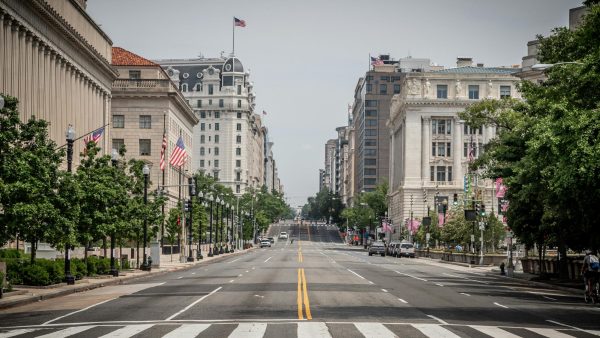Texas Abortion Law S.B.8
Is this perhaps the most controversial law passed in history? The new Texas abortion law, Senate Bill 8, S.B.8 for short, began taking full effect on September 1st. The law states that an abortion, after the sixth week of pregnancy, will be considered illegal. This means any woman who is pregnant in the state of Texas will not be able to get an abortion after a fetal heartbeat is detected.

This new law also states that any private citizen can sue an abortion provider or anyone who helps pregnant woman have their abortion. Anyone giving transportation to a clinic, providing financial aid, or showing support towards such acts can also be sued by a private citizen. The citizen can then be rewarded $10,000 for their report if it is found to be truthful. Additionally, there are no exceptions for instances of rape or incest.
The Public’s Response
Once this law was passed there were two major groups that had their opinions on the subject. The first group took a more conservative side, agreeing with law S.B.8. The second group, took a more liberal view, disagreeing and protesting against S.B.8, saying abortion is a right.
The more conservative group says that having an abortion, once there is a detectable heartbeat, is considered killing a new life. Another reason some believe abortion should be illegal is because of the well-being of the parents. According to an opinion piece from Cram, “Abortion can also lead to future health issues for the mother.” Not only the mother, but the father could experience long-term mental problems because of trauma after the procedure is done. One popular argument that is made is: abortion is used as an escape from responsibility. The same author from Cram later writes, “Abortion is used to escape responsibility and the consequences of a mistake.” Some also believe that women who get abortions are running from their problems and there is no reason the baby should be affected by the parents’ choices.
Others like to argue that a woman’s body is her choice. This group of individuals are frustrated with this new law because they argue it takes away a woman’s right to choose and a author from the website Amnesty says,“ It is a basic healthcare need for millions of women, girls and others who can become pregnant.” This law makes it so that no matter what circumstance someone is under, the child must be born. Jill Nicholson says, “A woman who is forced to bear a child born of rape will re-live that rape every day of her life.” She explains how if the mother is forced to have the child she will be reminded of nothing but the experience she had. Additionally, some may not be financially stable for a baby and can not take care of a child at the moment. Some like to argue S.B.8 can create an overpopulation of children that will end up in the foster care system due to parents not being financially stable. The biggest concern for this group of individuals is what this means for other states? Is this law the beginning of a nationwide illegalization of abortions?

What now?
John Seago, the legislative director of Texas Right to Life, says, “These lawsuits are not against the women.” Implying that when the lawsuits will be made, they will be made against the abortion clinic or abortion industry, not necessarily the women. Others worry that private citizens will now be on the lookout for people who want an abortion or locations that provide abortions so they can make money off of them. Seago later admits, “It is still a bit untested. We’re still working on what these lawsuits are going to look like if the industry decides to break the law.”
Abortion clinics statewide have already started refusing service to women who are more than six weeks pregnant. For example, Planned Parenthood, a nonprofit organization that provides reproductive health care, has already filed a restraining order against “Texas Right to Life” in an attempt to fight against law S.B.8. Planned parenthood argues the new law “violates Texans’ constitutional right to privacy and liberty as established by Roe v. Wade nearly 50 years ago. The law also violates the constitutional rights of abortion providers and supporters, including their right to equal protection under the law, and their First Amendment rights to free speech and access to the courts.” The outcome of the lawsuit has yet to be decided and the battle continues.
On September 20th, Dr. Alan Braid became the first man to publicly announce he preformed an abortion after September 1st, when the law came into effect. He said the abortion itself was preformed on September 6th and was given to a woman in her first trimester. There were two cases made over the law and in one, “the Justice Department is asking a federal judge to declare the law invalid,” said the Associated Press. This brings up the question of will the law stay intact or whether people will keep pushing back and result in the law getting repealed?

Hi! My name is Olivia Lieberman, and I am one of the EICs this year. I am a senior, and this is my third year writing for the school newspaper. I enjoy...






